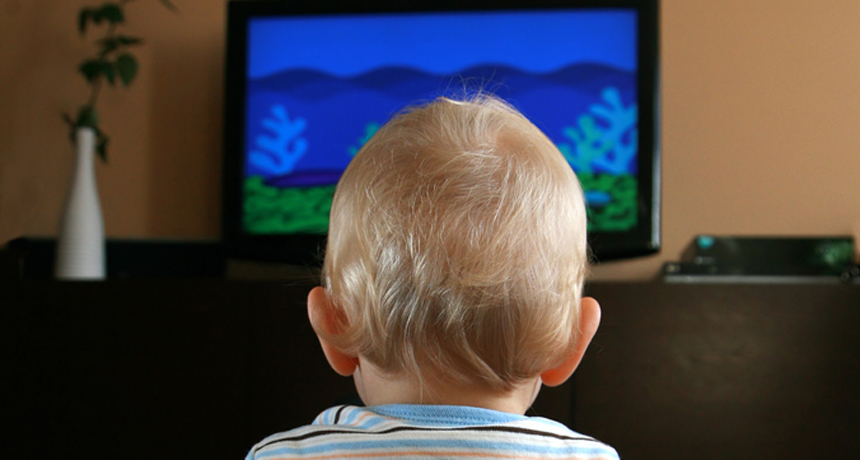TV linked with brain changes in kids

Kids do seem to be drawn to television like a moth to a 42-inch, high-definition flame. But a new study of Japanese children gives more reasons not to park kids in front of the tube.
Greenland/Shutterstock
Last Sunday, the Giants battled the Redskins in our living room, and there was no bigger fan than 9-month-old Baby V. Unlike her father, she was not interested in RG3’s shortcomings. The tiny, colorful guys running around on a bright green field, the psychedelic special effects and the bursts of noise drew her in like a moth to a 42-inch high-definition flame.
My friends with kids have noticed the same screen fascination in their little ones. Like adults, kids love colorful, shiny, moving screens. The problem, of course, is that watching TV probably isn’t the best way for little kids to spend their time. Long bouts in front of the tube have been linked to obesity, weaker attention spans and aggression in kids.
Now, a new study of Japanese children has linked TV time with changes in the growing brains, effects that have been harder to spot. And the more television a kid watches, the more profound the brain differences, scientists report November 20 in Cerebral Cortex.
Researchers studied kids between age 5 and 18 who watched between zero and four hours of television a day. On average, the kids watched TV for about two hours a day. Brain scans revealed that the more television a kid watched, the larger certain parts of the brain were. Gray matter volume was higher in regions toward the front and side of the head in kids who watched a lot of TV.
Say that again? Watching television boosts brain volume? Before you rejoice and fire up Season 1 of Breaking Bad, keep in mind: Bigger isn’t always better. In this case, higher brain volume in these kids was associated with a lower verbal IQ. Study coauthor Hikaru Takeuchi Tohoku University in Japan says that these brain areas need to be pruned during childhood to operate efficiently. “Gray matter volume is like body weight,” Takeuchi says — the scales can be tipped by both muscle and fat. Stretching the analogy to its (admittedly ridiculous) endpoint, TV might make the developing brain too fat.
These results, like most of the other studies on children and TV time, highlight an association. The data can’t say that TV viewing caused these changes. Even if the results could do that, it still wouldn’t be clear whether the culprit was TV itself or the lack of other activities like playing sports, practicing an instrument or playing with pals. Some of the kids in the study watched TV for 4 hours a day. Assuming they also ate, slept and went to school, that leaves very little time for anything else.
The study is “one of the first to attempt to bridge the developmental science of television viewing with neuroscience,” says health policy expert Frederick Zimmerman of the University of California, Los Angeles.
More studies are needed to figure out exactly how television affects the growing brain. But for now, it’s clear that parking in front of a TV for hours on end isn’t good for us, and that’s especially true if you’re a kid.







